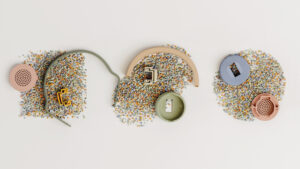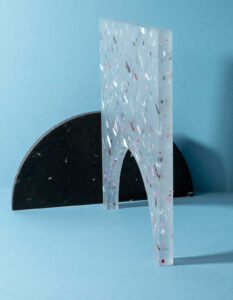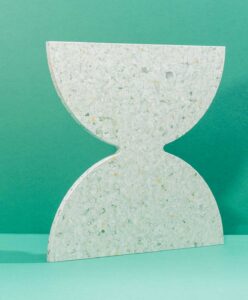On Contribution
Upon receiving knighthood, Terry Pratchett maintained that his greatest service to literature was to avoid writing any (Sir Terry Pratchett, 2023). On leaving reading group this week I was thinking a lot about that comment because after discussing Cradle to Cradle (Braungart and Mcdonough, 2009), as a product designer discussing consumerism, I can’t help but think my greatest service is to avoid producing anything.
I’ve had a long enough career in the design industry to come up against the term “value engineering” (VE) more than I care to remember. If this term is unfamiliar, it is best described as the whittling away of any part of a design that made said design interesting or unique. This is usually done to conform to a client’s shrinking and shifting budget but it can also happen when designer’s lose the will to fight for elements of a design they truly believe in. I have been guilty of this in the past.
It just so happened that I caught Dr. Harkness (Rachel) as I was leaving the building and we had a quick chat about this dilemma. Her take was that “de-growth” has to be explored and implemented in certain areas but that people need products so from a designer’s perspective it’s more about being judicious with what you’re putting into the world. This is a great place to start and for me that means when faced with VE, one has to be be firm and ready to avoid producing anything.
Further to this, I was able to catch two very good talks regarding products and materials through the Design for Planet Festival this week. The first was an introduction to Batch.Works, a company using on demand fabrication techniques via 3D printing. Partnering with Morrama industrial design, Batch.Works are developing repairable

headphones for kids. Made from agricultural feed plastic, each part will have an identifier so that it can be replaced and utilizes biomaterial circuit boards that dissolve in hot water. The second talk featured a panel of companies using natural materials but the participant that stood out was Smile Plastics. 100% post consumer plastics in sheet form that can be fabricated using traditional wood working tools. The panels made from yogurt cups still have bits of foil present, which I found interesting. They also allow designers and fabricators the ability to send scrap pieces back to the company for processing into new sheets.


It was a week of reflection and motivation but I am really enjoying the challenges to my field and my preconceived notions about how things should be done. It’s why I’m studying and I’m looking forward to the challenges to come.
Braungart, M. and Mcdonough, W. (2009). Cradle to Cradle : Remaking the Way We Make Things. London Vintage.
Sir Terry Pratchett. (2023). About Sir Terry. [online] Available at: https://www.terrypratchettbooks.com/about-sir-terry/ [Accessed 20 Oct. 2023].
Smile Plastics. (n.d.). Smile Plastics – Recycled Plastic Materials Design. [online] Available at: https://smile-plastics.com.
www.batch.works. (n.d.). Batch.Works. [online] Available at: https://www.batch.works/article?article_id=4fed2a8c-1cab-4a1d-9a88-7d5a2cd8a209 [Accessed 20 Oct. 2023].